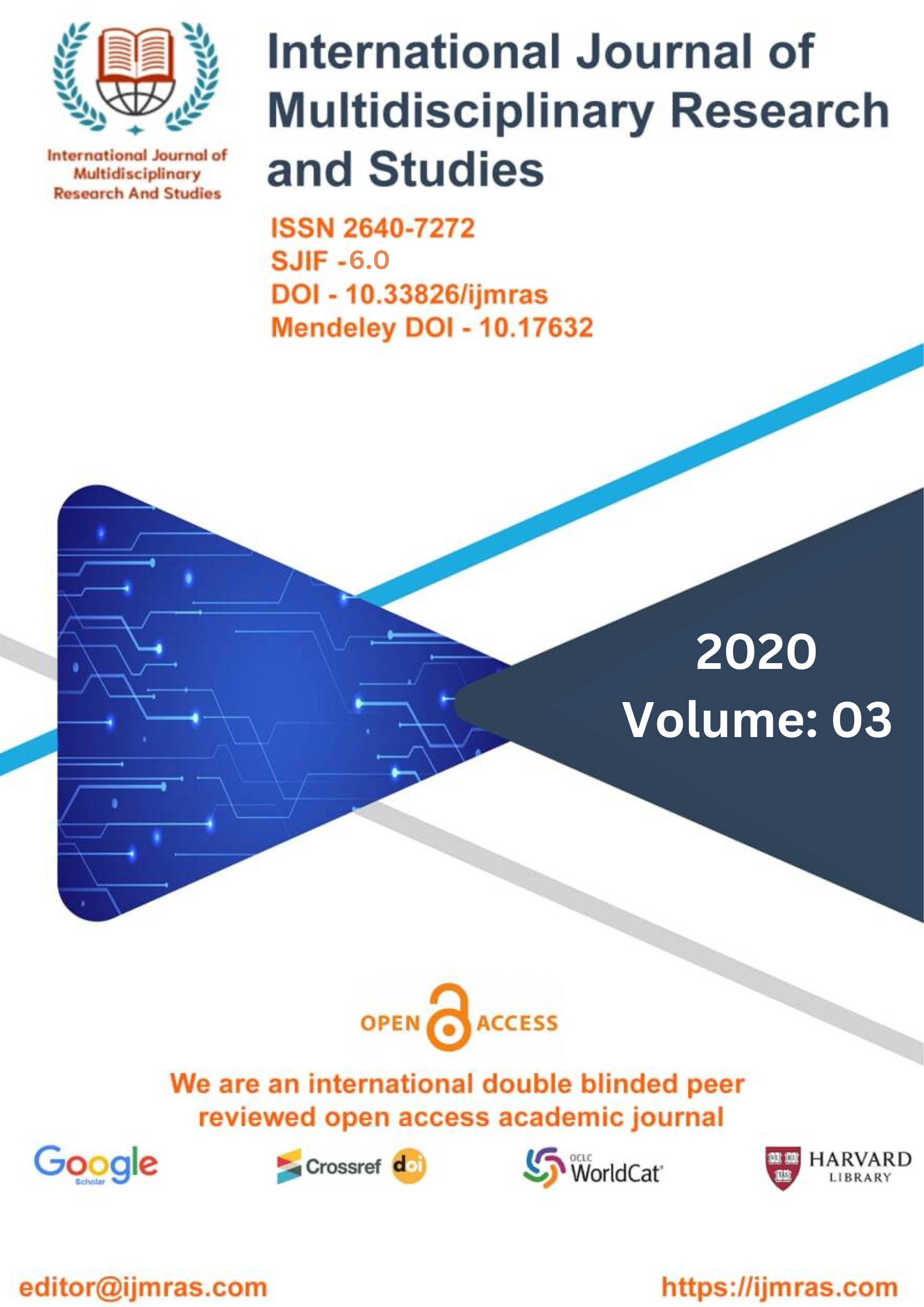A CASE STUDY ON THE ROLE OF SELF-HELP GROUPS (SHGS)

Abstract
In today's Indian society, the terms "women empowerment" and "self-help group" are often used interchangeably and mean the same thing. Self-help groups, often known as SHGs, unquestionably played a vital role in ensuring that women were given the position in society that was rightfully theirs, and they were also a driving force behind the incorporation of women into broader economic and political structures in India. Over the course of the past few decades, a great number of study articles have already been published to demonstrate the advantages of SHGs as well as the drawbacks they provide. On the other hand, there is very little evidence to support the idea that SHGs have been successful in fostering a sense of "self-reliance" among the women who are members of those organisations, beyond the women's status as "beneficiaries" of those groups. It is clear from the research that is currently available that women who are members of SHGs have been given a sense of hope and confidence as a result of the positive synergies that have been created by the groups. There is not enough evidence to determine the magnitude of change on their mental and economic independence outside of their activity groups. If this shift does not take place, then SHGs will not be able to assist women in reaching their full potential. Even though the objective of this study is somewhat narrow, an attempt is made to get some insights into the numerous aspects that influence women's empowerment.
Keywords
Self-Help, ShgsHow to Cite
References
Agarwal, A.N (2007) ‘Indian Economy; problems of DevelopmentandPlanning”,NewAgeInternationalPublishers,NewDelhi,2007.
Anuradha,Bhoite.(2006)WomenEmployeesandRuralDevelopmentProblemsofEmployedWomeninRuralAreas.,Shantinagar,DelhiGainPublishing.
Arunachalam. R, (2002) Perspectives of Empowerment in India inEmpowerment inof Women and ecological development. NewDelhi,A.RangaReddySerialPublications.
Astige,ShantaB(2012)EmpowermentofRuralWomen.UP(India),CurrentPublications.
Banerjee,N.(1989)FruitsofDevelopment;Pricklypearsforwomen,InK.Young(Ed)SavingTwoMasters:ThirdWorldWomeninDevelopment.NewDelhi,AlliedPublications.
Bhatia,B.M(1977)PovertyAgricultureandEconomicGrowth. NewDelhi,Vikaspublishinghouse.
Biju, M.R (2006) Women’s Empowerment Politics and Policies,NewDelhi,MittalPublications.
Bimal, K. Mahanty (2006) Women in SHG : Issues and avoidance,in R.K.Sahoo,S.N. Tripathy(ed)Self-HelpGroups andWomenEmpowerment.NewDelhi,AnmolPublications.
Bird,C.Barbara(1986)WomenEmployeeandRuralDevelopment.NewDelhi,GainPublicationsHouse.
Chapman(1976)EconomicIndependentforWomen–Thefoundation of equal Rights. New Delhi, Sage Publication India Pvt.Ltd.
Das,C.R(2006)Someissueand aspectofSHGFormationinSahoo,R.K.Tripathy,S.N.(ed)Self-helpGroupandWomenEmpowerment.NewDelhi,AnmolPublications.
Dasgupta, Dipankar(1997)Voluntry Contribution to the PublicGood: a Parable of Bad Samaritans’’, In issue in Economic TheoryandPublicPolicy,(ed),AmitavaBoseetal.NewDelhi,OxfordUniversityPress.
Deepa, Narayan (2005) Empowerment and Poverty Reduction.New Delhi,RawatPublications.
Deseai, Neera and Mathreyi Krishnaraj (1992) Women and Society in India.New Delhi,Ajanta Book International.
Deseai,Neera and Usha Takkar(2001)Women and Indian Society. New Dheli,National BookTrust.
License
Copyright (c) 2020 MANISH RAMAN

This work is licensed under a Creative Commons Attribution 4.0 International License.
Individual articles are published Open Access under the Creative Commons Licence: CC-BY 4.0.




